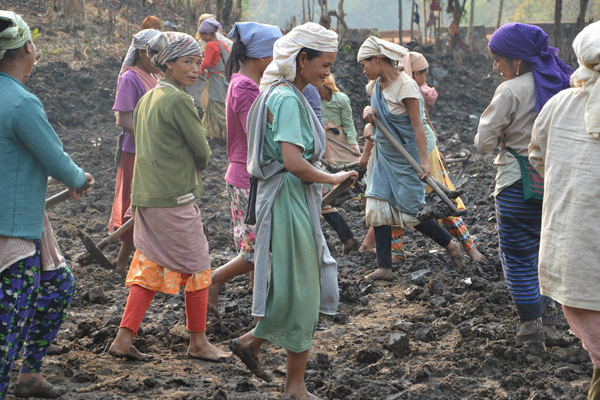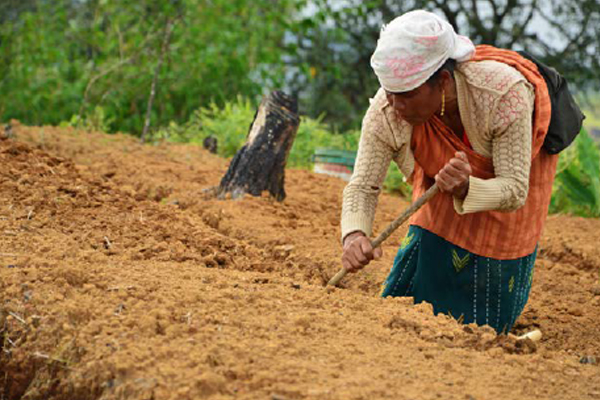Navigating Agricultural Challenges
The agricultural landscape of Meghalaya is fraught with numerous challenges that limit productivity due to the fragmentation of land, income, and market opportunities for local farmers. Small-scale farming is predominant and characterized by low yields and insufficient access to extension services. The sector’s growth is further stymied by the poor adoption of modern farm machinery and technologies, as well as inadequate processing infrastructure. Aggregation and marketing systems are in place but are not sufficient to cater to all of Meghalaya’s 4.5 lakh farming households, most of whom reside in remote areas with logistical constraints. Conditions are even more challenging due to limited remunerative market linkages and low investment levels, while restricted access to agricultural credit and poor penetration of formal banking networks exacerbate these issues.

Despite these significant challenges, the State Government is well positioned to tackle these issues. Various developmental programmes and projects have been introduced through departments and special purpose vehicles to address the different aspects associated with farming in challenging conditions and arrive at sustainable solutions. Among these is the State’s Planning Department’s Meghalaya Basin Management Agency (MBMA), the implementing agency for key externally aided projects committed to addressing issues of rural development and farmer empowerment holistically. Partnering with leading multilateral agencies and banks like the International Fund for Agricultural Development (IFAD), the World Bank, and the KfW Development Bank (KfW), MBMA’s initiatives span nearly all of Meghalaya’s 6,500+ villages.
Over the past decade, the IFAD-supported Meghalaya Livelihoods and Access to Markets Project (Megha-LAMP) and the World Bank-funded Community Led Landscape Management Project (CLLMP) have adopted unique strategies to tackle various facets of these challenges. Megha-LAMP focuses on establishing inclusive supply chains for agriculture, creating credit and marketing institutions of farmers, now popularly known as Integrated Village Cooperative Societies (IVCS), implementing integrated NRM for enhancing agricultural productivity, promoting entrepreneurship and farmer collectivization benefits, and establishing relevant agri infrastructure designed to enhance activities. CLLMP has supported communities with comprehensive management and conservation of natural resources through a holistic landscape approach, providing a model for community-led NRM and economic growth. Notably, CLLMP has introduced, for the first time in India, a state-wide Payment for Ecosystem Services model, with future payments pledged by the government and linkage to carbon markets to aid forest conservation for 30 years.
Although these projects have made significant strides in facilitating numerous initiatives and leveraging various resources to address these pressing agricultural sector issues, untapped opportunities remain. This led to the launch of the KfW-funded Sustainable Land Management Meghalaya Project (SLM), which aims to capitalize on Meghalaya’s traditional farming practices, connect farmers to lucrative markets, and tackle debt and productivity challenges by promoting organic farming, simplifying certification processes, enhancing farmer capacities, and strengthening market linkages.
Outlining SLM’s Role
The rationale behind the Sustainable Land Management Meghalaya Project (SLM) is rooted in the need to overcome the aforementioned challenges and help farmers continue with traditional farming practices, developing them into clean, niche food products. With a noticeable shift in consumer preferences towards quality organic foods, both at home and internationally, there is a rising demand for these food categories. Meghalaya’s tradition of organic farming uniquely positions it to tap into this demand. However, several hurdles require intervention, such as delivering effective market linkages, meeting certification costs, and ensuring sustainability in the organic farming sector.
Enhancing agricultural productivity and establishing robust market linkages are necessary not only for poverty reduction but also for driving economic growth. Recognizing the role of organic farming in Meghalaya, the project aims to promote traditional farming methods, which are predominantly organic. This approach can create new opportunities for farmers, farmer organizations, cooperatives, producers, and stakeholders to engage in sustainable and pesticide-free agriculture, aligning with the growing consumer demand for such produce. To improve market access and prices, the project will establish effective and sustainable linkages with accessible remunerative markets within and outside the State.
Another facet of the project is its aim to address the challenges associated with cumbersome and expensive certification processes. The approach is to streamline procedures and reduce costs, thereby facilitating access to certification for small-scale farmers. Capacity building is another key focus, empowering farmers with the necessary skills and knowledge for organic production and value addition, enhancing their participation in the organic agriculture sector.
Meghalaya’s focal goal is to double farmers’ incomes through various interventions including increased productivity, premium prices, and value addition. Organic agriculture methods have the potential to improve soil fertility and biodiversity, leading to sustainable increases in productivity over time if appropriate platforms are created. Hence, the SLM project will focus on developing farmers to certify their niche products.
In essence, SLM aims to establish and develop sustainable land management practices and value chains to unlock the full potential of Meghalaya’s agricultural sector.
The First Phase

The SLM project is an Externally Aided Project (EAP) of the Government of Meghalaya that was launched on 30 August 2023. For project implementation, MBMA is acting as the Project Executing Agency, supported by its stakeholder partners: the Directorate of Horticulture under the Department of Agriculture and Farmers’ Welfare, the Bio-Resources Development Centre (BRDC), and the Meghalaya State Rural Livelihoods Society (MSRLS).
The project aims to elevate existing farming practices in Meghalaya, converting or strengthening them to increase their value and market accessibility. These practices will be taken up in equal parts by the partner agencies to achieve common objectives. These include strengthening Natural Farming to achieve PGS certification and transitioning traditional methods to meet NPOP standards. The project will also address the complexities and costs of certification by piloting a new state-level organic certification system, “Megha Organics,” designed to adhere to organic standards while remaining cost-effective for targeting domestic and Northeast Indian organic markets.
The project comprises four key components. Component 1, “Organic Farming Production and Diversification,” aims to enhance organic farming competitiveness at the farm level by providing support for knowledge, technology, and finance. Component 2, “Value Addition & Upgradation of Aggregation Infrastructure,” focuses on improving market access for farmers through post-harvest handling and processing of organic produce. Component 3, “Establishing Effective Market Linkages,” is designed to overcome existing constraints and increase the volume of organic produce reaching wholesale markets, supermarkets, and other buyers. Lastly, Component 4, “Organic Certification for Premier Organic Markets,” aims to enhance the institutional capacities of executing and implementing agencies for smooth project delivery.
Initially, SLM will focus on 93 targeted villages, covering over 5,000 farming households across Meghalaya, during the Grant Phase. This phase aims to establish sustainable land management practices and value chains on a pilot basis, facilitated by a streamlined operational structure that can be replicated or scaled up at the state level. The primary goal is to lay the groundwork for the loan component. Once these models are successfully established, the grant phase will support the implementation of the loan phase, ensuring a smooth transition to full-scale project implementation.



